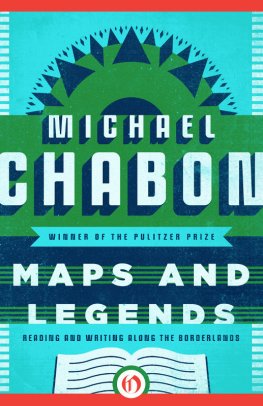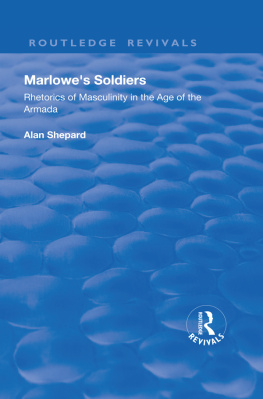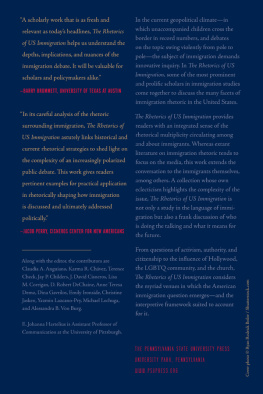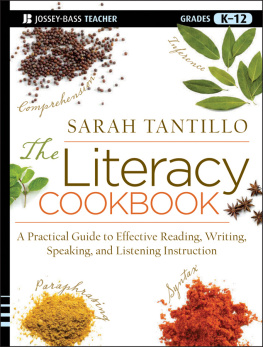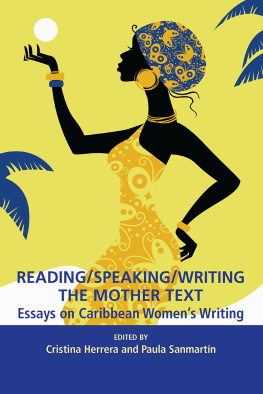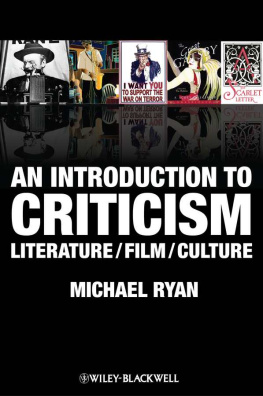J. Michael Sproule - Democratic vernaculars : rhetorics of reading, writing, speaking, and criticism since the Enlightenment
Here you can read online J. Michael Sproule - Democratic vernaculars : rhetorics of reading, writing, speaking, and criticism since the Enlightenment full text of the book (entire story) in english for free. Download pdf and epub, get meaning, cover and reviews about this ebook. year: 2020, publisher: Taylor & Francis Group, genre: Politics. Description of the work, (preface) as well as reviews are available. Best literature library LitArk.com created for fans of good reading and offers a wide selection of genres:
Romance novel
Science fiction
Adventure
Detective
Science
History
Home and family
Prose
Art
Politics
Computer
Non-fiction
Religion
Business
Children
Humor
Choose a favorite category and find really read worthwhile books. Enjoy immersion in the world of imagination, feel the emotions of the characters or learn something new for yourself, make an fascinating discovery.
- Book:Democratic vernaculars : rhetorics of reading, writing, speaking, and criticism since the Enlightenment
- Author:
- Publisher:Taylor & Francis Group
- Genre:
- Year:2020
- Rating:4 / 5
- Favourites:Add to favourites
- Your mark:
- 80
- 1
- 2
- 3
- 4
- 5
Democratic vernaculars : rhetorics of reading, writing, speaking, and criticism since the Enlightenment: summary, description and annotation
We offer to read an annotation, description, summary or preface (depends on what the author of the book "Democratic vernaculars : rhetorics of reading, writing, speaking, and criticism since the Enlightenment" wrote himself). If you haven't found the necessary information about the book — write in the comments, we will try to find it.
J. Michael Sproule: author's other books
Who wrote Democratic vernaculars : rhetorics of reading, writing, speaking, and criticism since the Enlightenment? Find out the surname, the name of the author of the book and a list of all author's works by series.
Democratic vernaculars : rhetorics of reading, writing, speaking, and criticism since the Enlightenment — read online for free the complete book (whole text) full work
Below is the text of the book, divided by pages. System saving the place of the last page read, allows you to conveniently read the book "Democratic vernaculars : rhetorics of reading, writing, speaking, and criticism since the Enlightenment" online for free, without having to search again every time where you left off. Put a bookmark, and you can go to the page where you finished reading at any time.
Font size:
Interval:
Bookmark:

Democratic Vernaculars is a comprehensive, culturally inclusive, and thematically unified history of the communicative, audience-centered rhetorical vernacular that occupies the middle range of English, bounded on the one side by expressive structure (grammar and linguistics) and on the other by aesthetics (literature).
Broadening the history of rhetoric by considering a vast collection of vernacular resources such as elementary grammars and readers, popular guidebooks, textbooks, and rhetorical treatises, this book advances the history of rhetorical theory and pedagogy since the 17th century by examining ways in which diverse vectors of the rhetorical vernacular coalesced to produce an English language sufficiently idiomatic for practical social exchange while being, at the same time, suitable for higher literary, scholarly, and cultural pursuits.
Democratic Vernaculars is essential reading for scholars in rhetoric and the histories of language and education, and can serve as a text for upper-division undergraduate and graduate courses in rhetoric.
J. Michael Sproule is Professor Emeritus of Communication Studies at San Jose State University and a past president of the National Communication Association.
First published 2020
by Routledge
52 Vanderbilt Avenue, New York, NY 10017
and by Routledge
2 Park Square, Milton Park, Abingdon, Oxon OX14 4RN
Routledge is an imprint of the Taylor & Francis Group, an informa business
2020 Taylor & Francis
The right of J. Michael Sproule to be identified as author of this work has been asserted by him in accordance with sections 77 and 78 of the Copyright, Designs and Patents Act 1988.
All rights reserved. No part of this book may be reprinted or reproduced or utilised in any form or by any electronic, mechanical, or other means, now known or hereafter invented, including photocopying and recording, or in any information storage or retrieval system, without permission in writing from the publishers.
Trademark notice: Product or corporate names may be trademarks or registered trademarks, and are used only for identification and explanation without intent to infringe.
Library of Congress Cataloging-in-Publication Data
Names: Sproule, J. Michael, 1949- author.
Title: Democratic vernaculars : English-language rhetorics of reading, writing, speaking, and criticism since the Enlightenment / J Michael Sproule. Description: New York : Routledge, 2020. | Includes bibliographical references and indexes.
Identifiers: LCCN 2019049444 (print) | LCCN 2019049445 (ebook) |ISBN 9780367416669 (paperback) | ISBN 9780367416676 (hardback) |ISBN 9780367815585 (ebook)
Subjects: LCSH: English language--Rhetoric--Study and teaching. |English language--Rhetoric--History.
Classification: LCC PE1404 .S7485 2020 (print) | LCC PE1404 (ebook) | DDC 808/.042--dc23
LC record available at https://lccn.loc.gov/2019049444
LC ebook record available at https://lccn.loc.gov/2019049445
ISBN: 978-0-367-41667-6 (hbk)
ISBN: 978-0-367-41666-9 (pbk)
ISBN: 978-0-367-81558-5 (ebk)
Most of all, to Betty
My indebtedness is considerable and from many wellsprings. To my parents, John and Kay Sproule, I owe not only everything but immediately my interest in antiquarian books and ephemera, this the material cause of Democratic Vernaculars. To academic and professional mentors, none more than Jim Golden and Al Lee, and to friends of discipline and of academy, I owe my research pursuits as a formal cause. To the Routledge reviewers and editorial-production team, I owe the efficient-cause transformation of my drafts into a finished book. And to my familyespecially Betty, John, and KevinI owe a lifetime of support and inspiration, thus enacting the final cause of work fulfilling its purpose.
J. Michael Sproule is Professor Emeritus of Communication Studies at San Jose State University. After receiving his Ph.D. at Ohio State University, he led start-up programs at the University of Texas, Permian Basin, and Indiana University Southeast. He later served as Director of the School of Media and Communication at Bowling Green State University and Dean of the College of Arts and Sciences at Saint Louis University. Dr. Sproule has held appointments as visiting lecturer in the Graduate School of Journalism, University of California at Berkeley and visiting scholar, Drew University. Author of seven books and more than fifty articles or chapters, he received a National Endowment for the Humanities Fellowship (19831984) for work on propaganda and is a two-time recipient (1988, 2013) of the Golden Anniversary Monograph award of the National Communication Association for articles treating propaganda and rhetoric. Sproule served as president of the NCA in 2007. Married to Betty A. Sproule since 1973 and the father of two sons, John and Kevin, he resides in Pacific Grove, California.
Democratic Vernaculars tells the story of how modern English idioms for everyday use emerged after the later 1600s under the auspices of rhetoric, an original member of the seven liberal arts and linchpin of the ancient trivium in partnership with grammar and logic. By bringing an awareness of audience, rhetoric as a discipline supplies a perspective indispensable for understanding vernaculars in the middle range of ordinary parlance bracketed on one side by structures of grammar and linguistics and on the other by the most exquisite achievements of literature (e.g., Gates, 1988; Elbow, 2012).
Democratic vernaculars inhabit the in-between of English by setting up and improving all metrics for theorizing, teaching, practicing, and criticizing functional modern idioms. But despite rhetorics centrality to the Anglophonic revolution (e.g., Miller, 1997, 2010), communicative considerations oftentimes take a backseat to expressive techniques. The motive to impactfully exchange symbols atrophies whenever theorists, teachers, or critics prioritize inward expressiveness by, for example, balanced sentences, inflection and related vocal mechanics, or varietal mediation as face-to-face versus digital.
The present collection of 750 treatises, textbooks, handbooks, manifestos, proposals, and manualsplus evidence of their use and applicationmaterially situates how the English language became both accessibly idiomatic (i.e., communicative) and acceptably standardized (i.e., expressive). What emerges is a picture of the democratic vernaculars which sustained speakers and writers over three centuries as they assimilated, improved, and executed varieties of the common tongue in diverse sites.
Because rhetorics texts intervened across the breadth of orality and literacy, they display an evanescent quality further obscuring how middle-range parlances constitute a distinct formulation of theory-criticism, pedagogy, and utilization. James Murphy (2016, 191) captures rhetorics frequently fugitive condition even in Roman times when he observes how in Quintilians Institutio Oratoria rhetoric is imbedded in a book about literacy education even though nine of Quintilians 12 books are devoted to rhetoric. Rhetorics oxymoronic character as centrally peripheral contributes to the frequent bias of modernists against the realm of rhetoricality (Bender and Wellbery, 1990) and in favor of the more elegant border regions of grammar and literature.
Democratic Vernaculars presents a history of the mother tongue as a utilitarian, functional, and text-enabled undertaking by which Anglophones exploited for impact the available media in cultural settings perceived as essential. Below, I lay out 10 principal claims in the context of particularly indicative antecedent studies of literacy, reading, grammar, composition, speechmaking, rhetoric, media, and literature.
Font size:
Interval:
Bookmark:
Similar books «Democratic vernaculars : rhetorics of reading, writing, speaking, and criticism since the Enlightenment»
Look at similar books to Democratic vernaculars : rhetorics of reading, writing, speaking, and criticism since the Enlightenment. We have selected literature similar in name and meaning in the hope of providing readers with more options to find new, interesting, not yet read works.
Discussion, reviews of the book Democratic vernaculars : rhetorics of reading, writing, speaking, and criticism since the Enlightenment and just readers' own opinions. Leave your comments, write what you think about the work, its meaning or the main characters. Specify what exactly you liked and what you didn't like, and why you think so.


